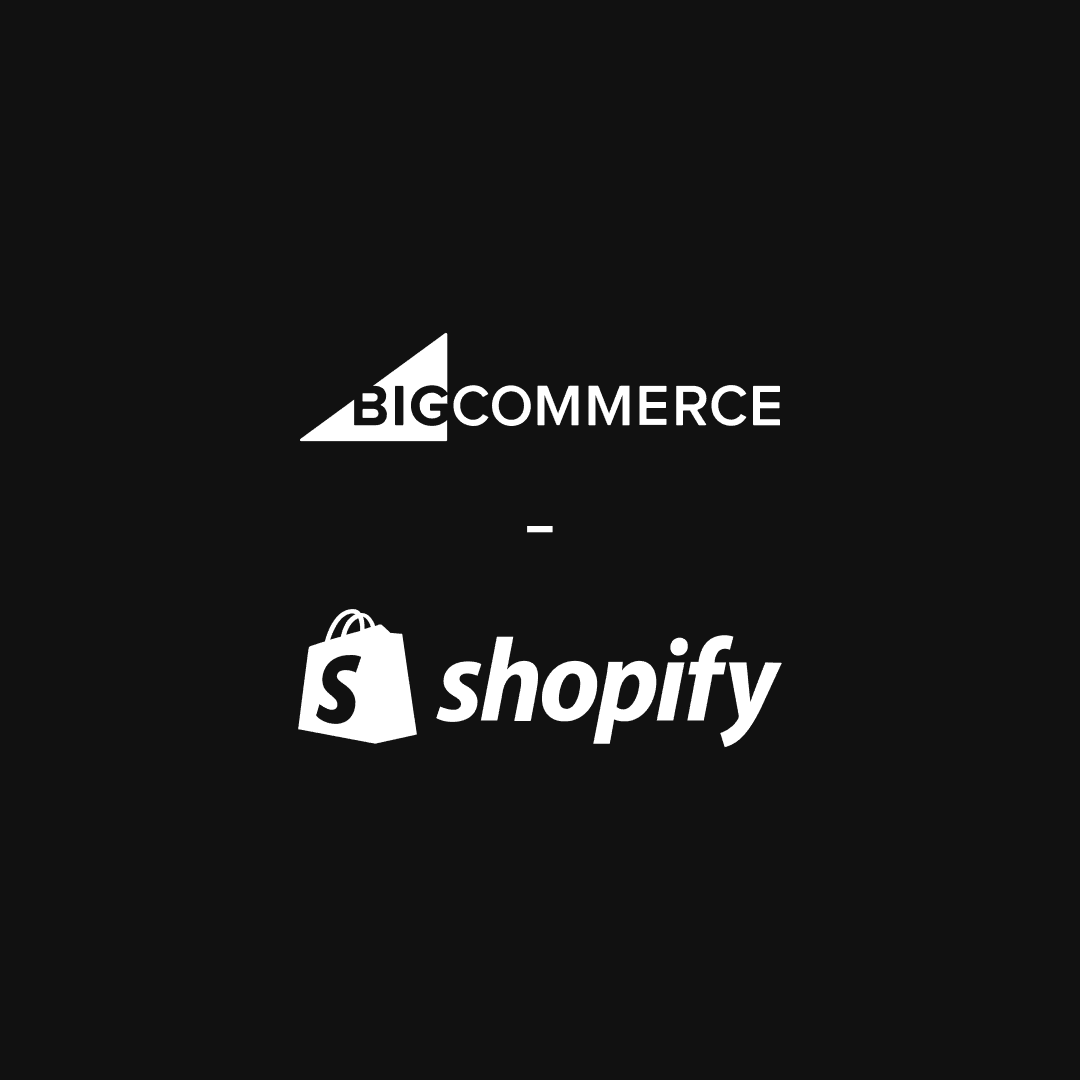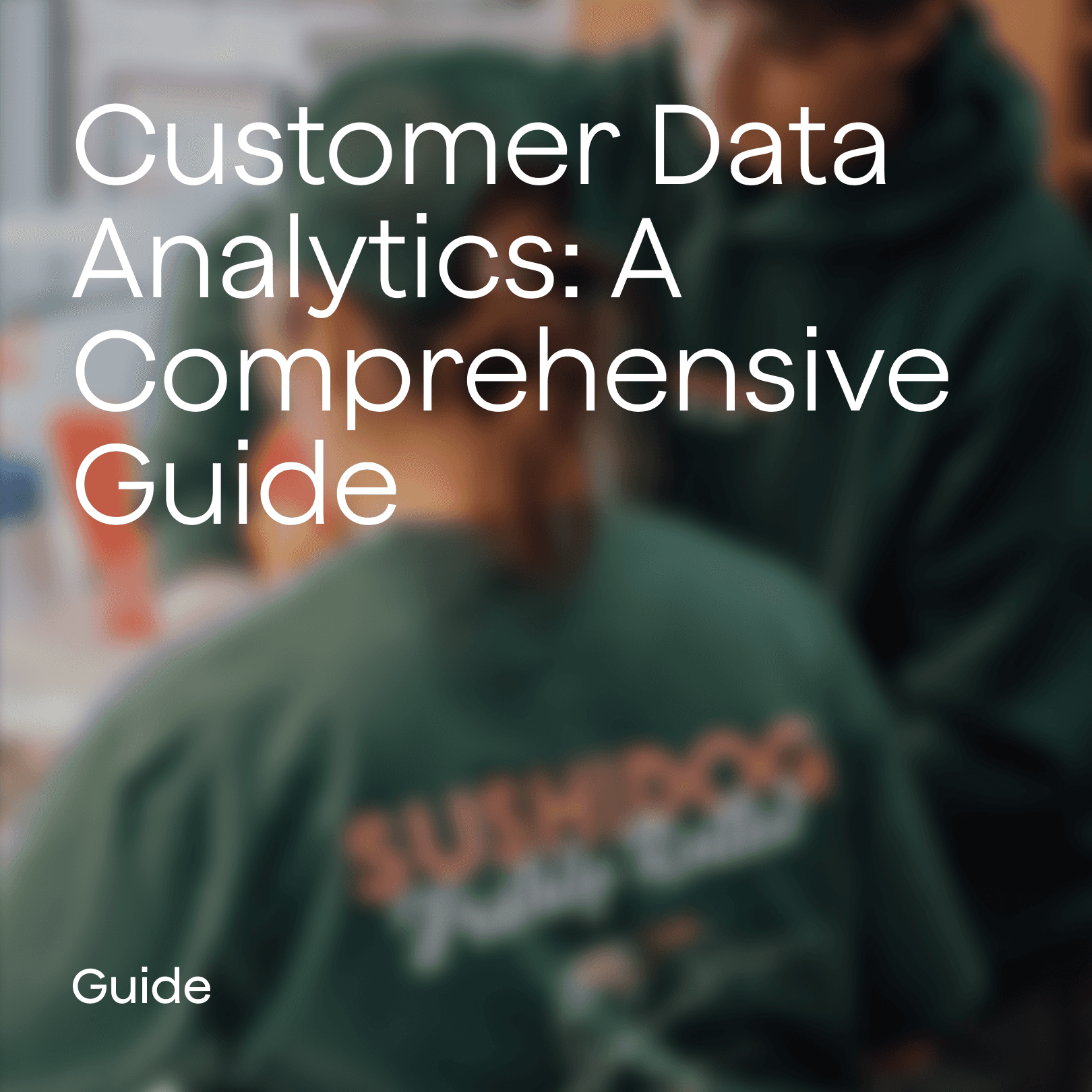BigCommerce vs Shopify: Discover which is a better fit for your e-commerce goals - Shopify's model for small business owners or BigCommerce's in-depth interface?
May 17, 2024
– 8 minutes read
BigCommerce vs Shopify: A comparison for 2024
With a plethora of options in the market, merchants, both seasoned and new, find themselves at the crossroads, evaluating which e-commerce platform aligns best with their vision and goals. Two of the standout names that frequently come under the spotlight in this arena are Shopify and BigCommerce. Each with its unique strengths and customer base, these platforms have established themselves as trusted pillars in the e-commerce community.
Established in 2006, Shopify has become a favorite among a wide range of businesses, from nascent startups to well-established enterprises, thanks to its user-friendly interface, extensive app store, and customizable templates facilitated by its theme language. In contrast, BigCommerce, founded in 2009, caters more to rapidly scaling businesses looking for robust online selling features without the heavy reliance on third-party apps, evident in its rich set of built-in tools and transparent, no-transaction-fee pricing model.
While Shopify emphasizes ease of use with its intuitive drag-and-drop interface and boasts POS hardware compatibility for businesses with physical storefronts, BigCommerce offers a comprehensive dashboard and focuses more on online sales capabilities. Both platforms provide round-the-clock customer support, though Shopify extends its support through email, phone, and live chat, whereas BigCommerce also boasts a comprehensive knowledge base.
In terms of fostering customer loyalty, Shopify leans on third-party apps, whereas BigCommerce incorporates loyalty features within certain plans. Integration capabilities also differ; Shopify's vast App Store offers a wide range of third-party integration options, while BigCommerce prides itself on extensive native integrations. Finally, the global footprint of each platform reflects their target market and scale, with Shopify serving as a global leader in the e-commerce space and BigCommerce showing significant growth, particularly among mid-sized to large businesses.
Background & Target Market
Shopify
Shopify started its journey in 2006 with the vision of providing an easy-to-use platform for individuals to start selling products online. Over time, it has carved out a name for itself, primarily serving small to medium-sized businesses. With a user-friendly interface and a plethora of features, Shopify caters to those seeking a quick and efficient way to set up their online store. Its versatile nature allows it to accommodate a variety of industries, from clothing brands to digital downloads.
BigCommerce
Founded in 2009, BigCommerce entered the e-commerce arena with the mission to help businesses of all sizes succeed online. While it also caters to small and medium businesses like Shopify, BigCommerce often leans towards enterprise-level companies seeking more complex solutions. Its robust set of features and scalability options make it ideal for store owners looking to expand rapidly.
User Experience & Interface
Shopify
Renowned for its user-friendly approach, Shopify wins many hearts with its intuitive drag-and-drop interface. Even those with minimal technical expertise find it easy to get their store up and running quickly. The dashboard is neatly organized, giving store owners immediate access to essential functions like inventory management, sales analytics, and more. Plus, with the availability of numerous free themes, merchants can customize their storefront with ease.
BigCommerce
BigCommerce offers a slightly steeper learning curve than Shopify. However, its interface is still relatively user-friendly. The dashboard provides an array of tools and settings, enabling store owners to fine-tune their site to their preferences. While it might take a bit longer for newcomers to get acquainted with, the depth of customization it offers makes the effort worthwhile.
Features
Shopify
Shopify's feature set is vast, designed to cater to both novices and seasoned e-commerce entrepreneurs. Some highlights include:
Seamless integration with a range of payment gateways, including "Shopify Payments."
Advanced Shopify tools for high-demand stores.
Point of sale (POS) capabilities for brick-and-mortar integration.
SEO capabilities to help products rank on search engines.
A thriving app store, boasting a multitude of third-party apps to extend store functionality.
BigCommerce
BigCommerce stands tall when it comes to features, some of which are:
A comprehensive set of built-in tools, reducing the reliance on third-party apps.
Advanced SEO capabilities ensuring products get visibility on popular search engines.
Options for selling across multiple channels, including Facebook, Instagram, and Amazon.
In-depth analytics and reporting tools providing insights into sales, customers, and overall store performance.
Hardware Compatibility
Shopify
Shopify's POS system is compatible with various hardware components, allowing businesses to sell in-person seamlessly. From card readers to receipt printers, Shopify ensures physical stores are well-integrated with their online counterpart.
BigCommerce
While BigCommerce primarily focuses on online selling, it does offer compatibility with certain POS systems. However, store owners might need to rely on third-party solutions for a fully-fledged in-person selling experience.
Pricing
Shopify
Shopify's pricing model is tiered, catering to a range of business sizes. Starting at $29/month for the basic package, it goes up to $299/month for the advanced version. Transaction fees are applicable, but these can be waived if store owners use Shopify Payments. It's essential to note additional charges when using third-party payment gateways.
BigCommerce
BigCommerce offers a competitive pricing structure, starting with the standard plan at $29.95/month. The platform doesn't charge transaction fees, which can be a significant advantage for stores with high sales volumes. However, they do have sales thresholds for each pricing tier, prompting an upgrade when surpassed.
Customer Support
Shopify
Shopify's customer support is renowned for its efficiency. Available 24/7 via live chat, email, and phone, they ensure store owners get timely assistance whenever needed. Their vast knowledge base and community forums also provide a wealth of information.
BigCommerce
Similar to Shopify, BigCommerce offers 24/7 customer support. They can be reached via live chat, email, and phone. Additionally, their resource center, webinars, and community forum offer extensive self-help options.
Loyalty Program Capabilities
Shopify
Shopify understands the power of customer retention. As such, it offers a plethora of options for store owners to implement loyalty programs. With its vast app store, merchants can easily integrate tools like Smile.io or LoyaltyLion to initiate points systems, referral programs, and other loyalty-based strategies. These apps seamlessly integrate with Shopify's platform, allowing businesses to reward their customers and encourage repeat business.
BigCommerce
BigCommerce doesn't fall behind in this department. The platform integrates with top-tier loyalty program providers like Yotpo and Annex Cloud. Store owners can customize their loyalty schemes, from VIP tiers to birthday rewards. The platform’s flexibility ensures businesses, regardless of their size, can implement a loyalty strategy that aligns with their brand and audience.
Integration Capabilities
Shopify
Integration is one of Shopify's strong suits. Its expansive app store is a testament to the platform's commitment to scalability and extensibility. Whether it's email marketing tools like Mailchimp, accounting software like QuickBooks, or inventory management systems, Shopify has got it covered. The platform's API also allows for custom integrations, ensuring businesses can sync their store with virtually any third-party tool or system.
BigCommerce
BigCommerce prides itself on being the e-commerce solution that has the most built-in features. Still, they recognize the importance of integrations. Their app marketplace is vast, offering connections to essential tools across marketing, sales, management, and more. BigCommerce's open API is robust, enabling developers to build custom integrations with ease. Plus, with their partnerships, integrations like Google Shopping are made effortlessly available to store owners.
Company Footprint
Shopify
Over the years, Shopify has evolved into more than just an e-commerce platform. They have extended their reach with initiatives like Shopify Capital (providing funding solutions for merchants) and their in-house payment solution, Shopify Payments.
Their influence in the e-commerce realm is undeniable, with over a million businesses in 175 countries using Shopify. Their global server infrastructure ensures speedy site performances regardless of the customer's location. Moreover, with their commitment to sustainability, Shopify aims to make commerce better not just for businesses but for the environment as well.
BigCommerce
While younger than Shopify, BigCommerce's footprint in the e-commerce sector is significant. Catering to a diverse range of businesses, from startups to well-established brands, they've processed billions in merchant sales. Their commitment to innovation is evident in their consistent platform updates, always aiming to provide merchants with the latest e-commerce tools and features. They also have a global presence, with offices in the US, Australia, and the UK, and their platform supports multiple languages and currencies, emphasizing their global approach.
Comparative Overview
In the ever-evolving landscape of e-commerce platforms, Shopify and BigCommerce are two giants that often go head-to-head. Let’s distill their features and offerings to better understand which platform might be the right choice for a potential merchant.
Ease of Use: Both platforms prioritize user experience, making them easy for even novices to navigate. However, Shopify's intuitive drag and drop interface is slightly more beginner-friendly. BigCommerce, while user-friendly, has a steeper learning curve due to its advanced features.
Customization and Design: Shopify shines with its diverse range of free and premium themes, allowing businesses to design a store that aligns with their brand. BigCommerce offers fewer themes, but they're responsive and customizable.
Features: Both platforms are feature-rich, but BigCommerce offers more built-in features, reducing the need for external apps. Shopify, on the other hand, has a more extensive app store, making it highly extensible.
SEO Capabilities: BigCommerce takes a slight edge here with its built-in SEO tools. Shopify also offers robust SEO capabilities, but to match BigCommerce's out-of-the-box offerings, you might need some third-party apps.
Pricing: While both platforms offer tiered pricing, BigCommerce includes sales thresholds that could push merchants to a higher plan once exceeded. Shopify's transaction fees are a consideration, but they can be bypassed using Shopify Payments.
Payment Solutions: Both platforms support a wide array of payment gateways. Shopify Payments is an added advantage for Shopify users, eliminating extra transaction fees. BigCommerce does not charge transaction fees, to begin with.
Integration: Shopify's extensive app store offers a plethora of integration options, from marketing tools to inventory management systems. BigCommerce also has a vast marketplace for integrations, and its open API allows for custom integrations.
Support: Both platforms offer exceptional 24/7 customer support. Their respective resource hubs are abundant with tutorials, guides, and community forums to assist merchants.
Company Footprint: Shopify, with its global reach and diverse suite of commerce tools, has a slightly larger footprint in the e-commerce realm. BigCommerce, while younger, has made significant strides and caters to a broad range of businesses globally.
Conclusion
The decision between Shopify and BigCommerce is not a straightforward one, as both platforms bring a suite of impressive features to the table. Your choice will hinge on your business's specific needs and where you foresee it heading in the future.
For beginners looking for an easy-to-navigate platform with ample customization options, Shopify might be the better choice. Its vast app store ensures your store can evolve with your needs. However, the potential transaction fees (if not using Shopify Payments) and the cost of external apps can add up.
On the other hand, BigCommerce is a powerhouse for businesses that anticipate rapid growth or already have significant sales volumes. Its built-in features reduce the reliance on external apps, and the absence of transaction fees is attractive. However, the sales thresholds in their pricing model can be a limitation for some.
In essence, there's no one-size-fits-all answer. It's about aligning the platform's offerings with your business goals. Whether you're leaning towards Shopify's extensive ecosystem or BigCommerce's built-in functionalities, both platforms are equipped to support your e-commerce journey to success. Do your research, consider your business's trajectory, and choose the platform that resonates most with your vision.



